Description
ABSTRACT
A Critique of the Deposit Requirement in Order V Rule 1 of the Federal High Court (Tax Appeal) Rules, 2022
Muhammad Yasin Abdulmumin*, Ayolola Ayodeji**, and Ijeoma IbukunOluwa Ubechu***
Taxation is a crucial aspect of the Nigerian economy, which helps generate and redistribute revenue for the provision of public services, basic amenities, and social infrastructure/facilities. This underscores the importance of an excellent legal regime to govern this aspect of the economy. There has recently been an upsurge in litigation arising from tax disputes, which now justifies the need for effective regulation of the tax justice system. Tax authorities and the National Assembly are trying to meet this challenge. One of such effort is the enactment of the Federal High Court (Tax Appeal) Rules 2022 (“the FHCTAR”). While the FHCTAR has introduced some laudable provisions, such as the use of electronic means for service of court processes and hearing notices, there are ongoing debates about the propriety of a novel provision under Order V Rule 1 of the FHCTAR. The said provision introduces the compulsory payment of security deposits by appellants (taxpayers/tax debtors) who seek to prosecute appeals from the Tax Appeal Tribunal (the “TAT”) to the Federal High Court (“the FHC”). This paper thus seeks to critically review Order VRule 1 of the FHCTAR – its constitutionality and other relevant legal issues.
Keyword: Deposit Requirement, Federal High Court, Tax Appeal Rules, Tribunal.
INTRODUCTION
Conceptually, both procedural and substantive tax legislations impose specific duties on the taxpayer and the tax authority. One of the duties of the tax authority is to administer tax legislation and ensure the taxpayer’s compliance with its statutory obligations. The tax authority evaluates the taxpayer’s fulfilment of these obligations (through various processes such as scrutiny, audit, etc.). This process sometimes leads the tax authority to (accurately or inaccurately) reach a determination of non-compliance of the taxpayer. This is because a given set of facts and laws may be amenable to different interpretations or constructions by the nature of tax laws. Hence, the liability of taxpayers under the various tax statutes is a common dispute between taxpayers and the tax authorities.
These tax disputes often result in litigation. Due to the sensitive and sometimes complex nature of tax disputes, specific procedures and conditions have been prescribed by tax statutes and rules for the commencement and conduct of tax appeals at the TATand the FHC.
* LL. B, LL.M (Unilorin) BL(Lagos). Senior Associate, Babalakin & Co. His practice is focused on Dispute Resolution, Islamic banking and finance and general corporate and commercial advisory. He can be reached on 08070657618. Email: a2**********@***il.com.
** Associate, Babalakin & Co. He can be reached onEmail: aa******@************co.com.
*** Associate, Babalakin & Co. She can be reached onEmail: be****************@***il.com.

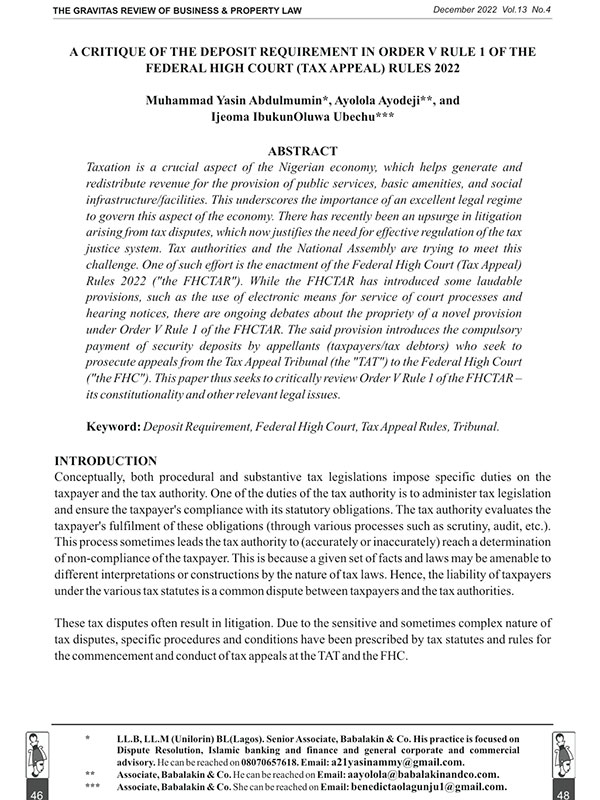
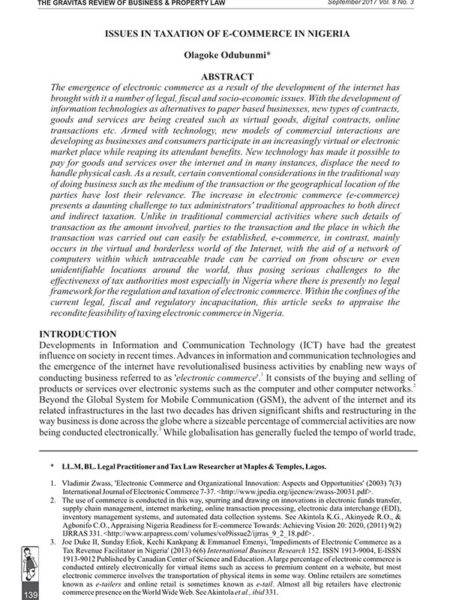
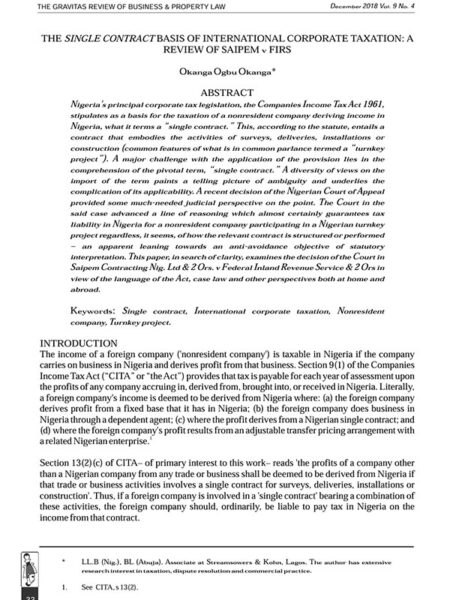
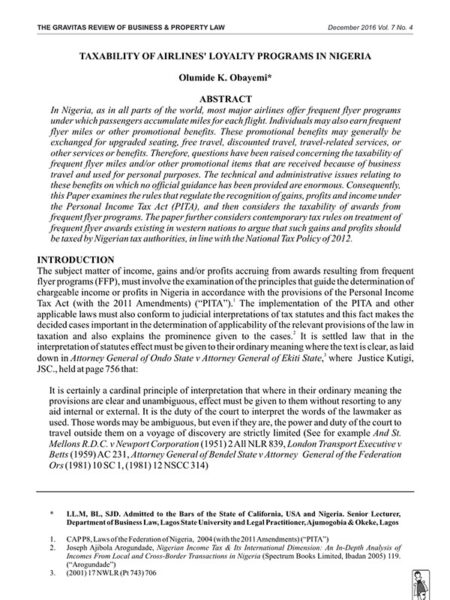
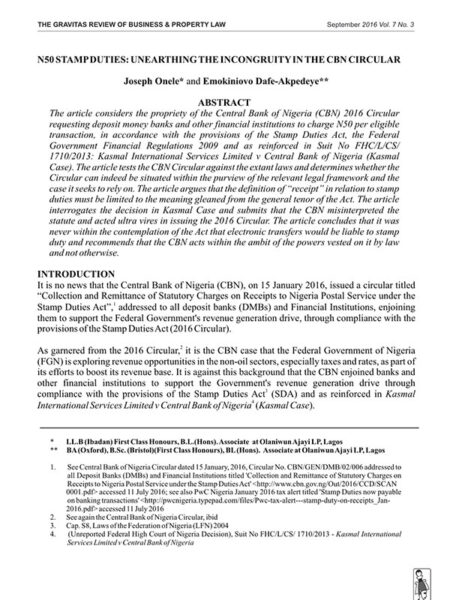


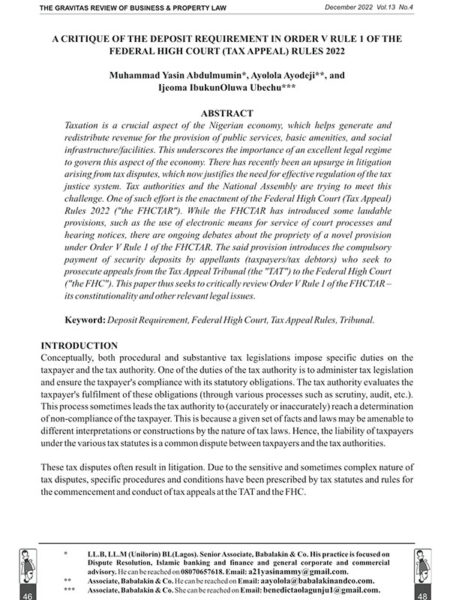
Reviews
There are no reviews yet.